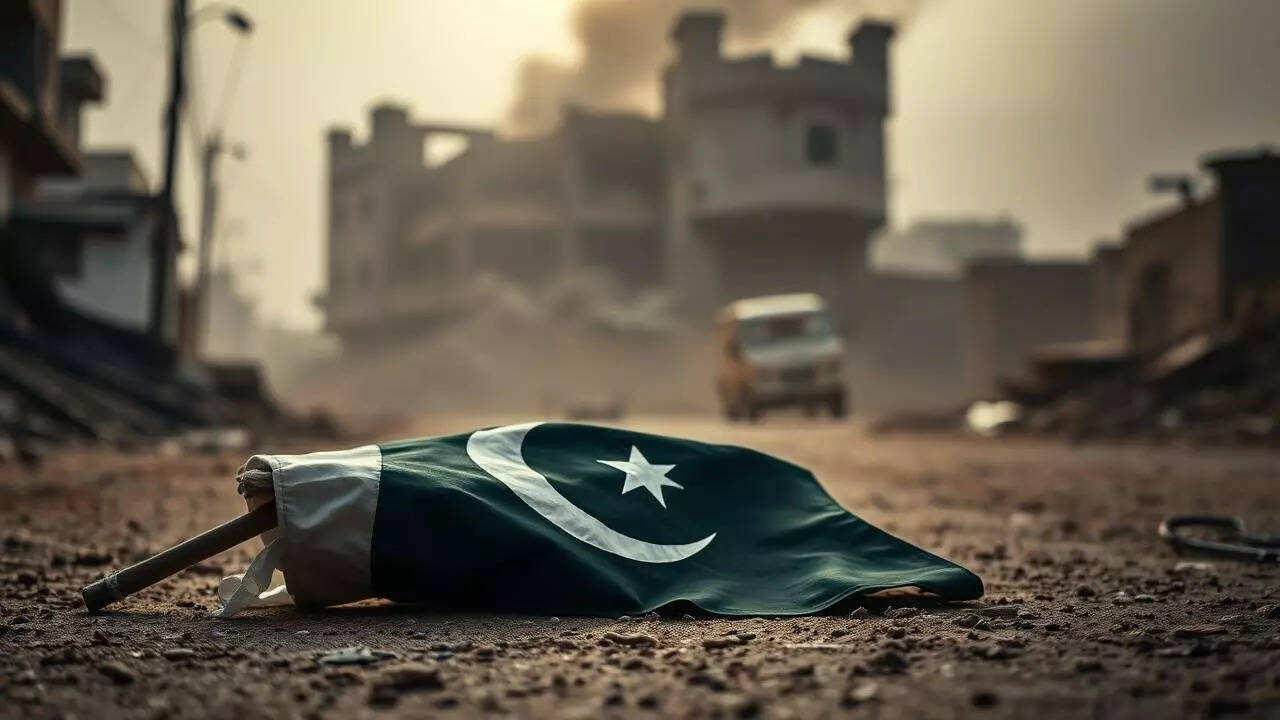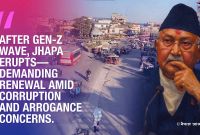Unmasking the Terror Hub: How Pakistan Became the World’s Epicenter of Extremism
From Bin Laden's Lair to Regional Chaos: A Nation Haunted by Militancy

For decades, Pakistan has navigated a complex and often contradictory relationship with extremist violence, frequently finding itself labelled as a global epicenter of terrorism. While suffering immense losses from domestic attacks, the nation simultaneously faces persistent accusations of sponsoring or tolerating militant groups that destabilize its neighbours and threaten global security. This troubled legacy stems from a history of strategic choices, internal conflicts, and geopolitical maneuvering.
A Legacy of Infamy: From Abbottabad to the Frontier
Perhaps no single event cemented Pakistan’s association with terrorism more vividly than the discovery and killing of al-Qaeda leader Osama bin Laden on May 2, 2011. U.S. Special Forces located and eliminated the architect of the 9/11 attacks not in some remote tribal cave, but deep within a fortified compound in Abbottabad – a Pakistani garrison city. The revelation that the world's most wanted terrorist had lived securely for years just miles from Pakistan's top military academy sent shockwaves globally, raising unavoidable questions about official complicity or, at the very least, profound negligence within the state apparatus.
Cross-Border Violence: Accusations from India and Afghanistan
Pakistan's neighbours have borne much of the brunt of militancy allegedly emanating from its soil.
- India: New Delhi has consistently accused Islamabad of orchestrating or facilitating numerous devastating attacks. The horrific 2008 Mumbai assaults, which killed 166 people, were carried out by gunmen from Lashkar-e-Taiba (LeT), a group India insists operates with support from Pakistan's Inter-Services Intelligence (ISI). Other major incidents blamed on Pakistan-based groups include the 2001 attack on the Indian Parliament, the 2016 Pathankot airbase strike, the 2019 Pulwama bombing, and countless smaller attacks and infiltrations in Kashmir linked to groups like LeT and Jaish-e-Mohammad (JeM).
- Afghanistan: Pakistan played a crucial role in the rise of the Afghan Taliban in the 1990s and has been accused of providing sanctuary and support to its leadership (the "Quetta Shura") during the long US-led war. The Haqqani Network, known for sophisticated and deadly attacks against Afghan and international forces, has long operated from bases in North Waziristan, Pakistan. Islamabad’s alleged influence over the Taliban remains a major factor in Afghanistan's ongoing instability.
Terror at Home: Pakistan’s Internal Bloodletting
While accused of exporting terror, Pakistan has itself been ravaged by extremist violence, often perpetrated by groups like the Tehreek-e-Taliban Pakistan (TTP) – an ideological cousin of the Afghan Taliban – and sectarian outfits:
- Peshawar School Massacre (2014): In an act of chilling brutality, TTP militants stormed the Army Public School, killing 149 people, mostly children.
- Sectarian Carnage: Groups like Lashkar-e-Jhangvi (LeJ) and Sipah-e-Sahaba have waged a violent campaign against Shia Muslims, bombing mosques and processions (like the 2016 Quetta shrine attack) and carrying out targeted assassinations. Christian minorities have also faced attacks, such as the 2013 All Saints Church bombing in Peshawar.
- Attacks on Security Forces & Infrastructure: Militants have frequently targeted Pakistani military and police, stormed prisons (like the 2012 Bannu jailbreak freeing hundreds), and attacked infrastructure.
- Journalist Killings: The 2002 kidnapping and murder of Wall Street Journal reporter Daniel Pearl in Karachi highlighted the dangers faced by those investigating militant networks.
State Actors & Shadow Armies: The ISI Controversy
A critical element in accusations against Pakistan involves elements within its powerful security establishment, particularly the ISI. Critics allege a long-standing policy of using militant groups like LeT, JeM, and the Haqqani Network as "strategic assets" or proxies to pursue foreign policy objectives in India and Afghanistan. This alleged strategy relies on "plausible deniability," allowing the state to publicly condemn terrorism while covertly maintaining links with certain groups, creating a dangerous and destabilizing double game.
Civilians Caught in the Crossfire
The true cost of this environment is paid daily by ordinary Pakistanis. Fear permeates public life, with markets, schools, places of worship, and transport hubs becoming potential targets. Sectarian violence has torn communities apart. Thousands of civilians from all backgrounds – Sunni, Shia, Christian, Hindu, and secular – have been killed or injured in bombings, suicide attacks, and targeted killings over the years. The constant threat stifles dissent and creates an atmosphere where peace-seeking citizens often feel terrorized into silence.
International Scrutiny and Isolation
The global community has grown increasingly impatient with Pakistan's perceived ambiguities on terrorism. The Financial Action Task Force (FATF), an international watchdog, repeatedly placed Pakistan on its "grey list" for deficiencies in combating terror financing and money laundering, only removing it after significant pressure and reforms were claimed. Major international aid, particularly from the West, has become increasingly conditional on demonstrable and irreversible action against all militant networks operating on its territory. Despite official crackdowns, key militant leaders often seem to evade capture or serious prosecution, fueling international skepticism.
Can Pakistan Break Free? A Perilous Path
Within Pakistan, voices from civil society, politics, and even parts of the military advocate for a decisive break from all forms of militancy, recognizing it as an existential threat. However, dismantling the deeply entrenched infrastructure of extremism faces immense hurdles. Powerful religious lobbies, extensive networks of ideological madrassas, and factions within the security apparatus resist fundamental change.
Conclusion: Confronting a Dangerous Legacy
Pakistan's position as a focal point for international terrorism is not an overnight phenomenon but the result of decades of strategic policy choices, ideological currents, and regional power plays. Until Islamabad comprehensively confronts this legacy – demanding transparency, undertaking deep institutional reform, and demonstrating unwavering political will to abandon the use of militancy as a policy tool – its own population will continue to suffer the devastating consequences, and the world will remain wary of the extremist threats potentially nurtured within its borders.




![From Kathmandu to the World: How Excel Students Are Winning Big [Admission Open]](https://nepalaaja.com/img/70194/medium/excel-college-info-eng-nep-2342.jpg)
